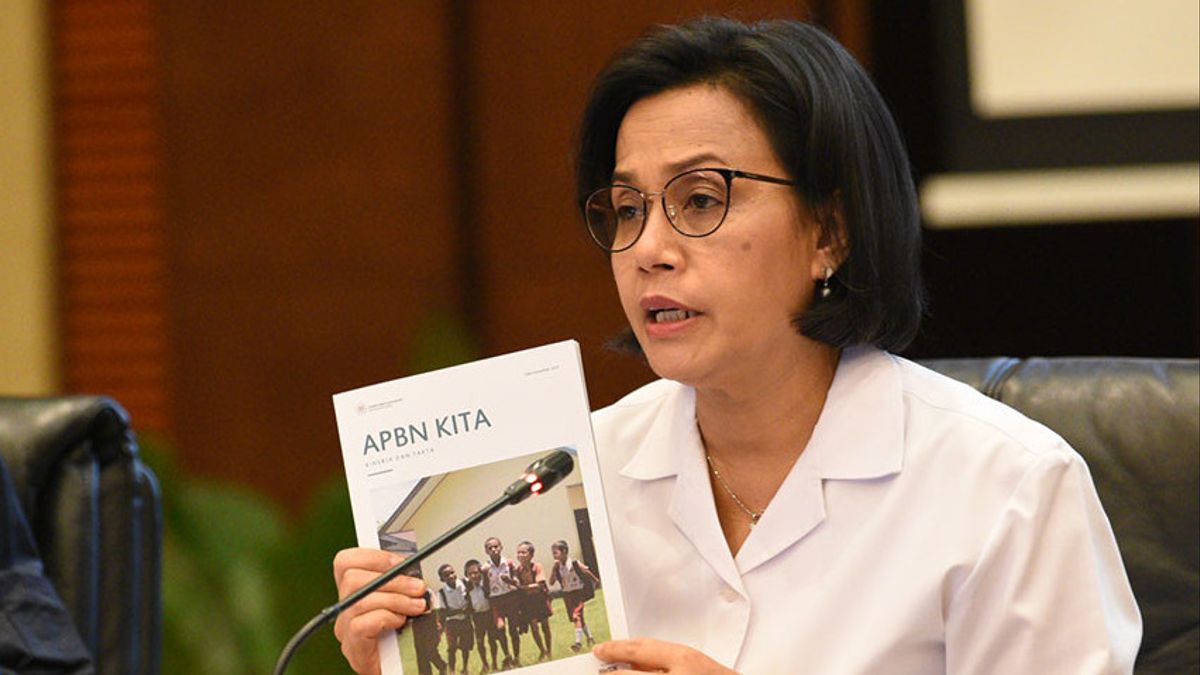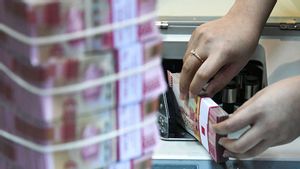JAKARTA - The central government continues to strive to reduce the negative impact of the domestic coronavirus pandemic or COVID-19. Various policies continue to be issued. One of them is increasing the social safety net budget to reach Rp110 trillion to help people affected by the pandemic.
Finance Minister Sri Mulyani estimated that the assistance issued by the government to date can reach 50 to 60 percent of the lowest economic layers of society.
"Now with the expansion of social assistance including the Pre-Work Card, we estimate that the people who get government assistance can reach 60 percent," he said, in a virtual hearing (RDP) with Commission XI of the DPR, Thursday, April 30.
He explained, the additional budget of Rp110 trillion contained in this third stimulus package, consisting of Rp65 trillion for additional budgets for various social safety net programs. Then, IDR 25 trillion for basic needs and market operations, as well as an adjustment to the education budget of IDR 20 trillion.
Meanwhile, continued Sri Mulyani, the additional budget for the social security program includes the family hope program of IDR 8.3 trillion, a basic food card of IDR 15.5 trillion, and a pre-employment card of IDR 10 trillion.
"Discounts on electricity rates of Rp3.5 trillion, housing incentives Rp1.5 trillion, assistance for Jabodetabek staples and non-Jabodetabek cash assistance of Rp.19.6 trillion, and other programs of Rp.6.5 trillion," he said.
Then, the additional basic needs and market operations budget includes rice assistance worth IDR 10.5 trillion and other basic operating reserves of IDR 14.5 trillion.
According to Sri Mulyani, a budget of IDR 65 trillion for household support could cover 103 million individuals or 29.1 million families. This figure includes about the bottom 40 percent of the Indonesian population.
The Family of Hope Program (PKH), he continued, had almost reached the poorest 20 percent. Meanwhile, the basic food card recipients reach 35 percent of the poor. Then the electricity tariff discount reaches 50 percent of our lowest society.

Then, said Sri Mulyani, BLT village funds that were issued could cover 11 million recipient families and pre-employment cards as many as 5.6 million recipients, which is estimated to also cover up to 60 percent of the lowest group of people.
"If we look at the layers of social assistance, there is a double possibility, but we are trying to provide social support to the affected communities," he explained.
The distribution of funds for Jabodetabek reaches IDR 3.42 trillion
Sri Mulyani revealed that the distribution of special social assistance funds intended for residents of Jakarta, Bogor, Depok, Tangerang, and Bekasi (Jabodetabek) costs up to Rp3.42 trillion.
"For the Jabodetabek social assistance, yesterday the governors asked for the additional from the president. So there are 1.3 million (recipients) for DKI and 600 thousand (recipients) for Bodetabek, apart from PKH and staple food card recipients. bottom, "he said.
Details of the beneficiaries of social assistance for the capital city area reached 1.3 million recipients or Rp2.34 trillion. Meanwhile, the Bodetabek area is targeting 600 thousand recipients with a budget requirement of IDR 1.08 trillion.
This social assistance is given in the form of basic food packages worth Rp. 600 thousand per household which are given for 3 consecutive months. Aid distribution is carried out twice a month, each amounting to Rp. 300 thousand per package.
The English, Chinese, Japanese, Arabic, and French versions are automatically generated by the AI. So there may still be inaccuracies in translating, please always see Indonesian as our main language. (system supported by DigitalSiber.id)









